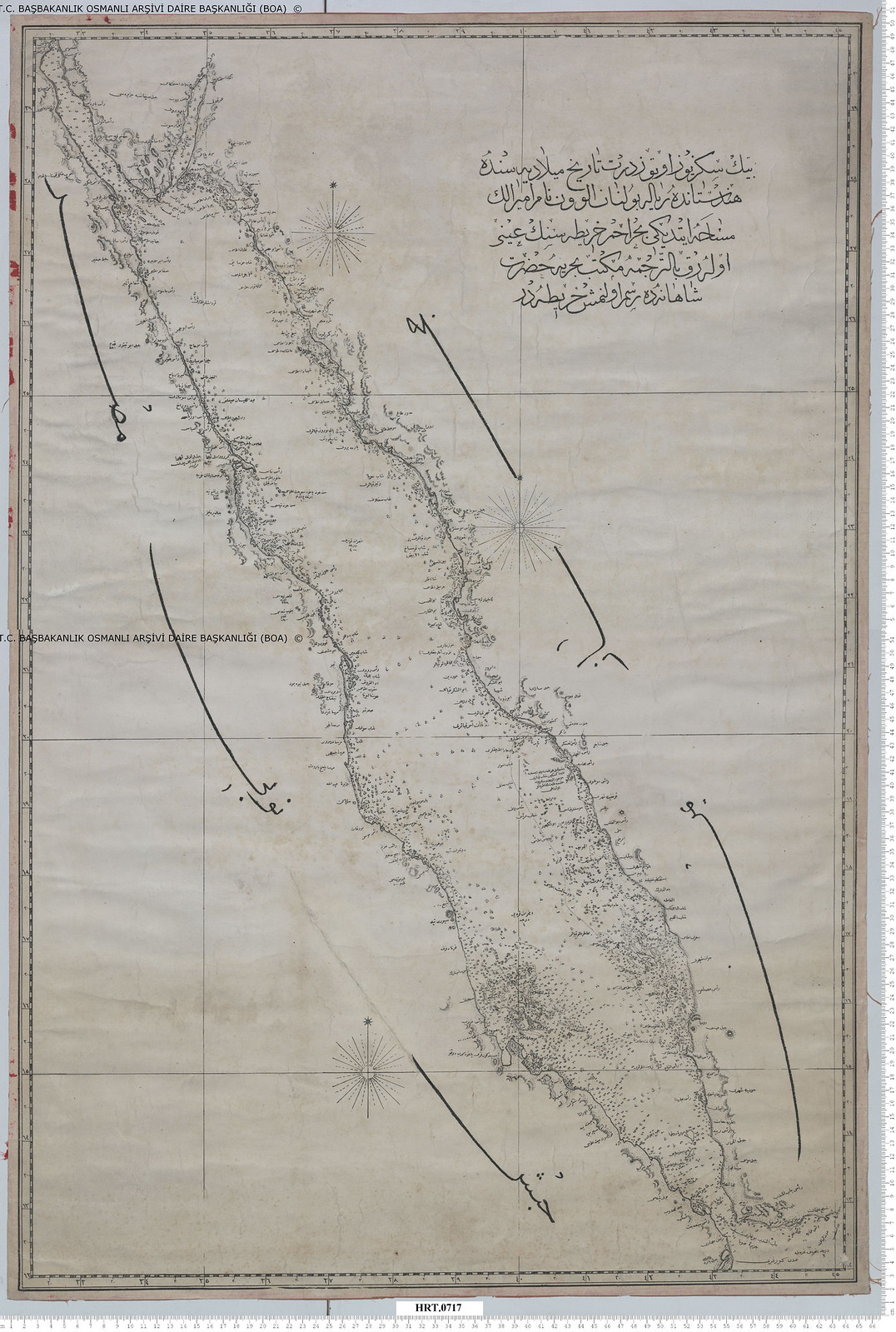The Ottoman Red Sea
hosted by Susanna Ferguson
The body of water now known as the Red Sea lay well within the bounds of the Ottoman Empire's well-protected domains for nearly four centuries. It wasn't until the 19th century, however, that this body of water began to be called or conceived of as "the Red Sea" by either Ottomans or Europeans. In this episode, Professor Alexis Wick argues that we have much to learn about how history (and Ottoman history in particular) "makes its object" by studying not only the emergence of the concept of the Red Sea, Ottoman or otherwise, but also the surprising absence of such a history in previous scholarship. His new book The Red Sea: In Search of Lost Space (University of California Press, 2016) is both a conceptual history of the Red Sea as seen through both Ottoman and European eyes, and a reflection on the methodologies, tropes, and preoccupations of Ottoman history writ large.
 |
Alexis Wick is is Assistant Professor of history at the American University of Beirut. His first book, The Red Sea: In Search of Lost Space (Berkeley: University of California Press, 2016), presents an innovative account of the Ottoman Red Sea world even as it traces the genealogy of the concept of the sea. His current research explores the history of coffee, the poetics and practices of space in the Islamic tradition, and the introduction of a new concept of humanity in 19th century Ottoman and Arabic discourse. He is also writing a collection of essays on the various embodiments of the idea of Palestine in different times and places.
|
 |
Susanna Ferguson is a Ph.D. Candidate in Middle Eastern History at Columbia University. She is currently working on a dissertation entitled "Tracing Tarbiya: Women, Gender and Childrearing in Egypt and Lebanon, 1865-1939."
|
CREDITS
Episode No. 258
Release Date: 16 August 2016
Recording Location: American University, Beirut
Audio Editing by Onur Engin
Sound excerpts: Müzeyyen Senar - Gülsen-i Hüsnüne Kimler Varıyor
Images and bibliography courtesy of Alexis Wick
IMAGES
 |
| Source: Başbakanlık Osmanlı Arşivi, A-DVN-MSR-MHM.d, no. 9 |
 |
| Ottoman Map of the Red Sea Source: Başbakanlık Osmanlı Arşivi, HRT 0717 Click here for the full size, high resolution composite image of this map |
 |
| Alexis Wick The Red Sea: In Search of Lost Space UC Press, 2016 |
Blumi, Isa. Foundations of Modernity: Human Agency and the Imperial State. New York: Routledge, 2012.
Braudel, Fernand. The Mediterranean and the Mediterranean World in the Age of Philip II. Translated by Siân Reynolds. Berkeley: University of California Press, 1996.
Brummett, Palmira. Ottoman Seapower and Levantine Diplomacy in the Age of Discovery. Albany, NY: SUNY Press, 1994.
Casale, Giancarlo. The Ottoman Age of Exploration. New York: Oxford University Press, 2010.
Hegel, G. W. F. Lectures on the Philosophy of World History. Introduction: Reason in History. Translated by H. B. Nisbet. London: Cambridge University Press, 1975.
Ho, Engseng. The Graves of Tarim: Genealogy and Mobility Across the Indian Ocean. Berkeley, CA: University of California Press, 2006.
Horden, Peregrine, and Nicholas Purcell. The Corrupting Sea: A Study in Mediterranean History. Malden, MA: Blackwell, 2000.
------. “The Mediterranean and ‘the New Thalassology.’” American Historical Review 111, no. 3 (June 2006): 722–40.
Lewis, Martin, and Kären Wigen. “A Maritime Response to the Crisis in Area Studies.” Geographical Review 89, no. 2 (April 1999): 161–68.
———. The Myth of Continents: A Critique of Metageography. Berkeley: University of California Press, 1997.
Lewis, Martin. “Dividing the Ocean Sea.” Geographic Review 89, no. 2 (April 1999): 188–214.
White, Hayden. The Content of the Form: Narrative Discourse and Historical Representation. Baltimore: Johns Hopkins University Press, 1987.
Wick, Alexis. The Red Sea: In Search of Lost Space. Berkeley, CA: University of California Press, 2016.
Wigen, Kären. “Oceans of History: Introduction.” AHR Forum. American Historical Review 111, no. 3 (June 2006): 717–21.










Comments
Post a Comment
Due to an overwhelming amount of spam, we no longer read comments submitted to the blog.